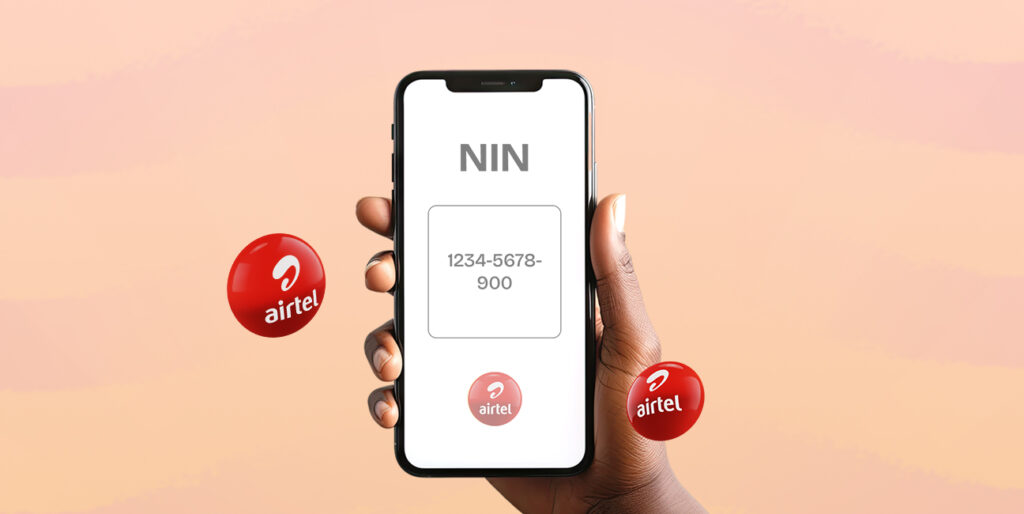The Nigerian government has made it mandatory for all mobile phone users to link their National Identification Number (NIN) to their respective phone numbers. This policy, though met with initial resistance, is a crucial step in the fight against fraud and cybercrime. This blog post will delve into the intricacies of how linking your NIN to your Airtel number contributes to a safer digital landscape in Nigeria. There is a code for linking your NIN to your Airtel number in Nigeria.
Understanding the NIN-SIM Linkage
The NIN, a unique identifier assigned to every Nigerian citizen and legal resident, serves as a foundational piece in the puzzle of national identity management. By linking this number to your Airtel SIM, the government creates a robust database that can be used to verify identities, track SIM card ownership, and ultimately, curb fraudulent activities.
The Role of NIN Linkage in Fraud Prevention
- Identity Verification: The cornerstone of fraud prevention lies in accurate identity verification. By linking NIN to SIM cards, it becomes significantly more difficult for fraudsters to use stolen or fake identities to commit crimes. Every SIM card is tied to a specific individual, making it easier to trace the origin of fraudulent activities.
- SIM Card Registration: Before the NIN-SIM linkage, SIM cards were often purchased with minimal information, making it challenging to track their owners. Now, every SIM card is registered to a specific individual, making it harder for criminals to use unregistered SIM cards for illicit activities.
- Combating Cybercrime: Cybercriminals often use mobile phones to perpetrate various crimes, including online scams, identity theft, and financial fraud. Linking NIN to SIM cards helps law enforcement agencies to track down cybercriminals and bring them to justice.
- Combating Terrorism: Terrorist organizations often use mobile communication for planning and executing attacks. By linking NIN to SIM cards, security agencies can monitor SIM card usage and identify potential threats.
- Protecting Critical Infrastructure: Critical infrastructure like power plants, water facilities, and telecommunications networks are potential targets for cyberattacks. Linking NIN to SIM cards helps to protect these assets by making it harder for unauthorized individuals to access critical systems.
How the Government Utilizes NIN-Linked Data
The government employs sophisticated data analysis tools to extract valuable insights from the NIN-linked data. This information is used to:
- Identify Fraud Patterns: By analyzing large datasets, the government can identify emerging fraud trends and develop strategies to counter them.
- Target Fraudsters: Law enforcement agencies can use the data to pinpoint individuals involved in fraudulent activities.
- Improve Service Delivery: The data can be used to enhance government service delivery by understanding the needs of the population better.
- National Security: The information is vital for national security, as it helps to identify potential threats and protect citizens.
Challenges and Opportunities
While the NIN-SIM linkage is a significant step forward, challenges remain. These include:
- Technical Issues: Ensuring the secure storage and processing of vast amounts of data is a complex task.
- Data Privacy: Protecting the privacy of citizens while utilizing the data for public good is a delicate balance.
- Public Awareness: Many Nigerians still need to be fully aware of the benefits of NIN-SIM linkage and the importance of complying with the regulations.
Despite these challenges, the potential benefits of the NIN-SIM linkage are immense. By addressing these issues and continuing to invest in technology and infrastructure, Nigeria can build a safer and more secure digital environment.
Conclusion
Linking your NIN to your Airtel number is not just a compliance requirement; it is a patriotic duty. By doing so, you contribute to a safer Nigeria for yourself and future generations. The government’s commitment to leveraging this data for the benefit of the people is crucial. With continued collaboration between the government, telecom providers, and the public, Nigeria can become a leader in combating fraud and cybercrime.






